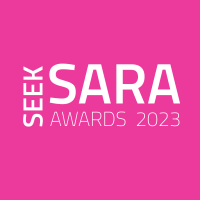Climate reporting and green hiring
Should you worry about reporting requirements?
New Zealand has introduced mandatory climate-related financial disclosures for large financial market participants, with reporting starting from 1 January 2023.
These rules aim to bring consistency, improve transparency around climate risks, and support New Zealand’s transition to a low-emissions economy.
What needs to be reported
Organisations must prepare climate-related disclosures as part of their annual reporting, aligned with Aotearoa New Zealand Climate Standards (developed by the XRB and based on TCFD recommendations).
Reports must cover:
- Governance: How climate-related risks are overseen and managed.
- Strategy: How climate risks and opportunities affect the business model and strategy.
- Risk management: Processes for identifying and managing climate risks.
- Metrics and targets: Emissions data and other metrics used to assess climate-related risks.
Greenhouse gas emissions reporting (Scope 1, 2, and later Scope 3) will also require independent assurance for accounting periods ending on or after 27 October 2024.
Who is required to report?
Overseas incorporated companies with qualifying NZ operations are also included. Roughly 200 entities are captured under the regime, including:
Registered banks, credit unions and building societies
with assets over $1 billion
Investment managers
with assets under management over $1 billion
Licensed insurers
with total assets over $1 billion or annual premium income over $250 million
Listed companies
with equity or debt securities exceeding $60 million in market or face value
Crown Financial Institutions
with assets under management over $1 billion
Oversight and assurance
The
Financial Markets Authority (FMA)
is responsible for monitoring and enforcing compliance.
Disclosures will be
phased in, with some standards initially optional to allow time for capability building.
- Independent assurance over GHG emissions will be required from late 2024.
- The government is consulting on expanding the assurance scope and related regulation.
What to do right now?
- Assess readiness – Understand your organisation’s obligations and gaps.
- Improve climate data collection – Begin building internal systems for tracking emissions.
- Establish governance processes – Assign responsibility and set up proper oversight.
- Understand the XRB climate standards – Familiarise your team with NZ CS 1, 2, and 3.
Recruitment industry awards

Excellence in Client Service
2024 & 2023 Winner
The RCSA Client Service Award recognises agencies that exceed client expectations through smart recruitment solutions, strong partnerships, and consistently high-quality service.

NZ Candidate Experience
2023 Winner
The SEEK SARA Candidate Experience Award recognises agencies delivering outstanding support, innovation, and care to job seekers throughout every stage of the hiring journey.
2025 Employment & Salary Report
Take a closer look at what’s driving hiring in your industry, from shifting employer priorities to the roles most in demand. This comprehensive report reveals the key trends shaping recruitment and workforce strategy this year, and provides your business with a competitive edge needed in today’s uncertain labour market.
- Benchmark your company's attraction and retention strategies
- Find out what job seekers are looking for in 2025
- Identify emerging and current hiring and salary trends






